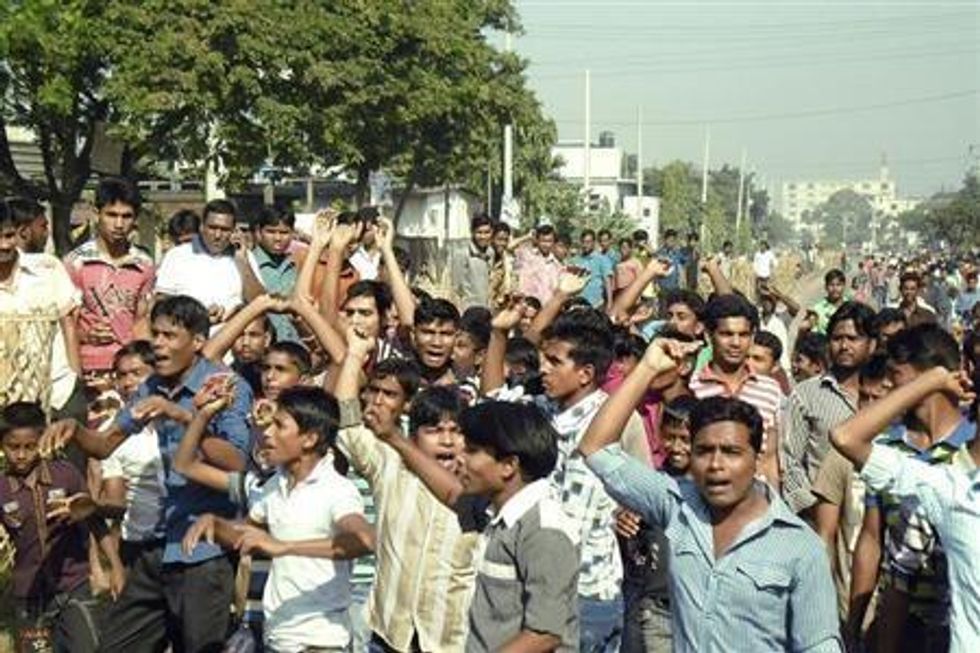Thousands of striking factory
workers took to the streets of Dhaka in Bangladesh once again on Thursday, following a weak proposal from factory owners to raise workers' wages to $68 per month instead of the $100 demanded in the booming labor movement.
The proposed increase would still leave wages at the lowest rate for garment workers in the world, Khandaker Golam Moazzem, a research director at the Center for Policy Dialogue think-tank, told Reuters.
The wage offer, agreed upon in meetings between factory owners and Prime Minister Sheikh Hasina on Wednesday night, was not nearly enough to quell the growing outrage over the poor and often fatal working conditions workers have suffered in Bangladesh for decades.
A string of deadly factory disasters, including the collapse of the Rana Plaza factory complex in April that killed more than 1,100 people, has resulted in domestic and international outrage over working conditions in the country, leading to ongoing protests over the past several months.
Protests this week alone have forced the closure of more than 100 factories, and 200 stopped production on Thursday as police clashed with the striking workers in the capital Dhaka, using water cannons, tear gas and rubber bullets on the growing crowds.
"We will continue protesting until we realize our demand," a protester said.
Amid the ongoing protests, international brands such as Walmart, The Gap, and Old Navy, who generate enormous profits through the utilization of cheap labor in Bangladesh, have largely failed to respond to international calls for better working conditions and pay in the factories those corporations subcontract.
As Michelle Chen for In These Times recently wrote:
Despite protests led by workers and solidarity campaigns by labor advocates around the globe, however, the multinational brands that drive Bangladesh's thriving garment industry are characteristically reluctant to address demands either for higher wages or fair compensation for aggrieved workers and their families. Victims' families and survivors have yet to see any large-scale compensation, though one brand, the UK-based Primark, has agreed to provide some preliminary payments to victims.
_____________________




